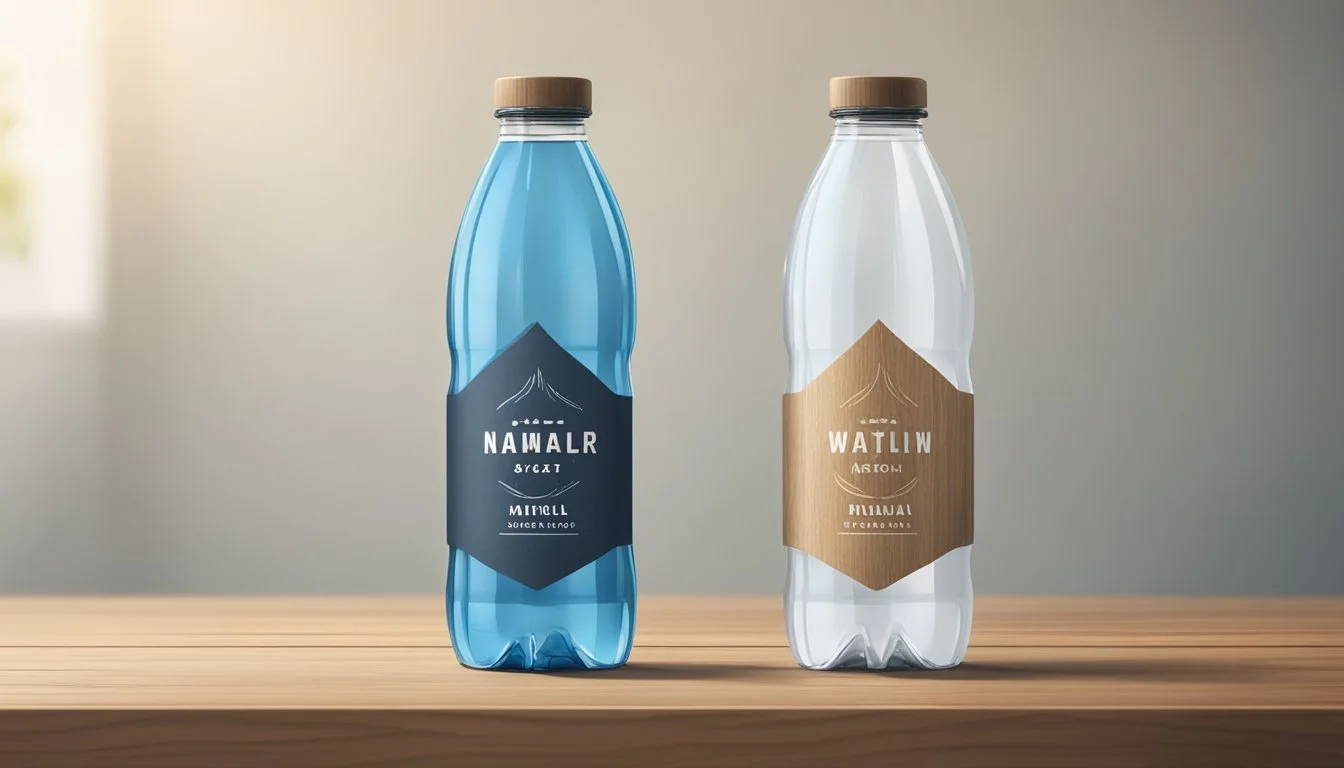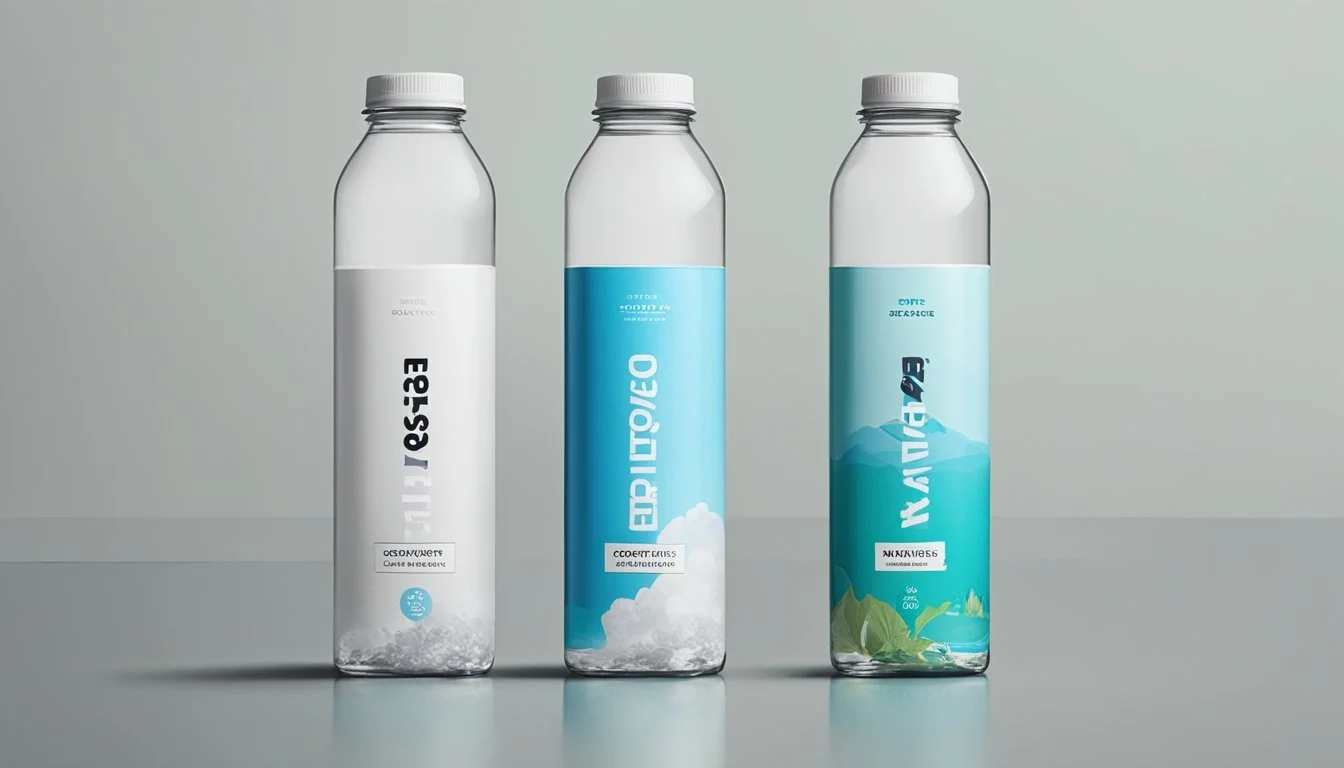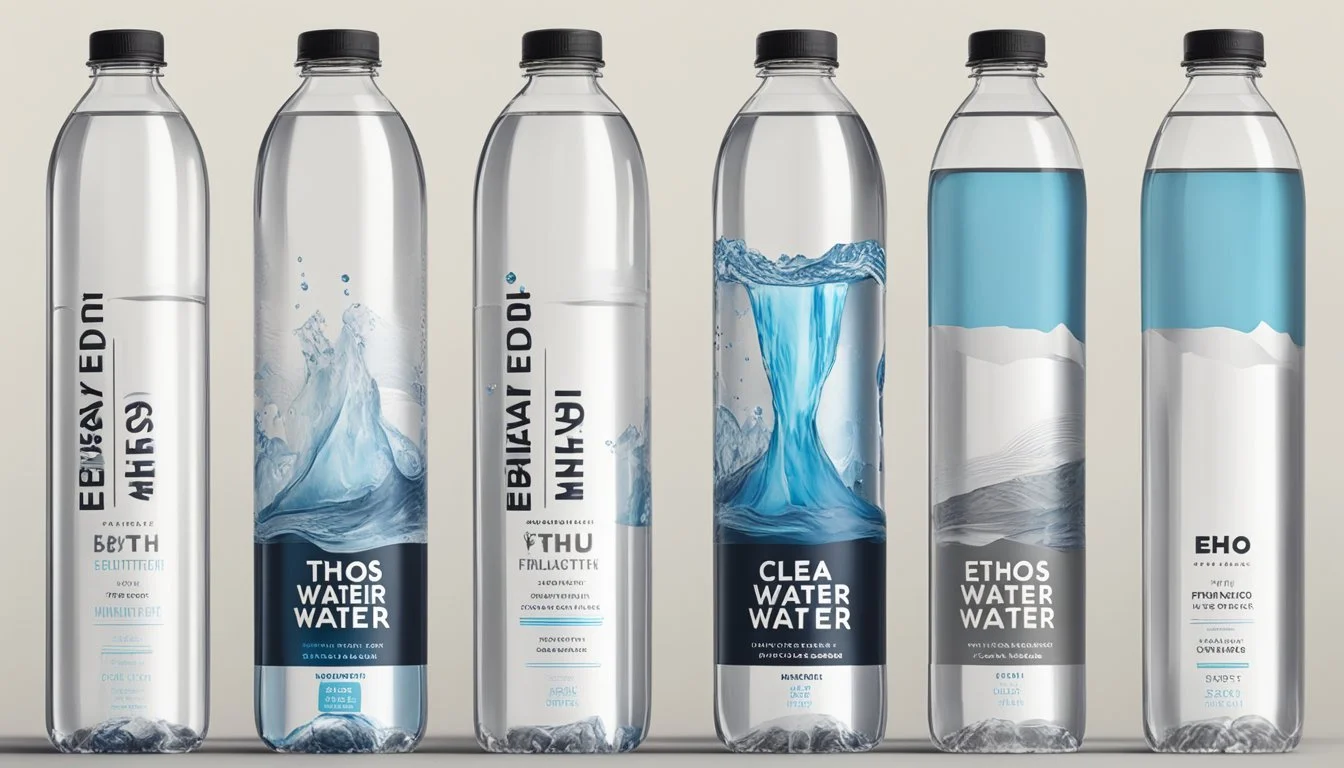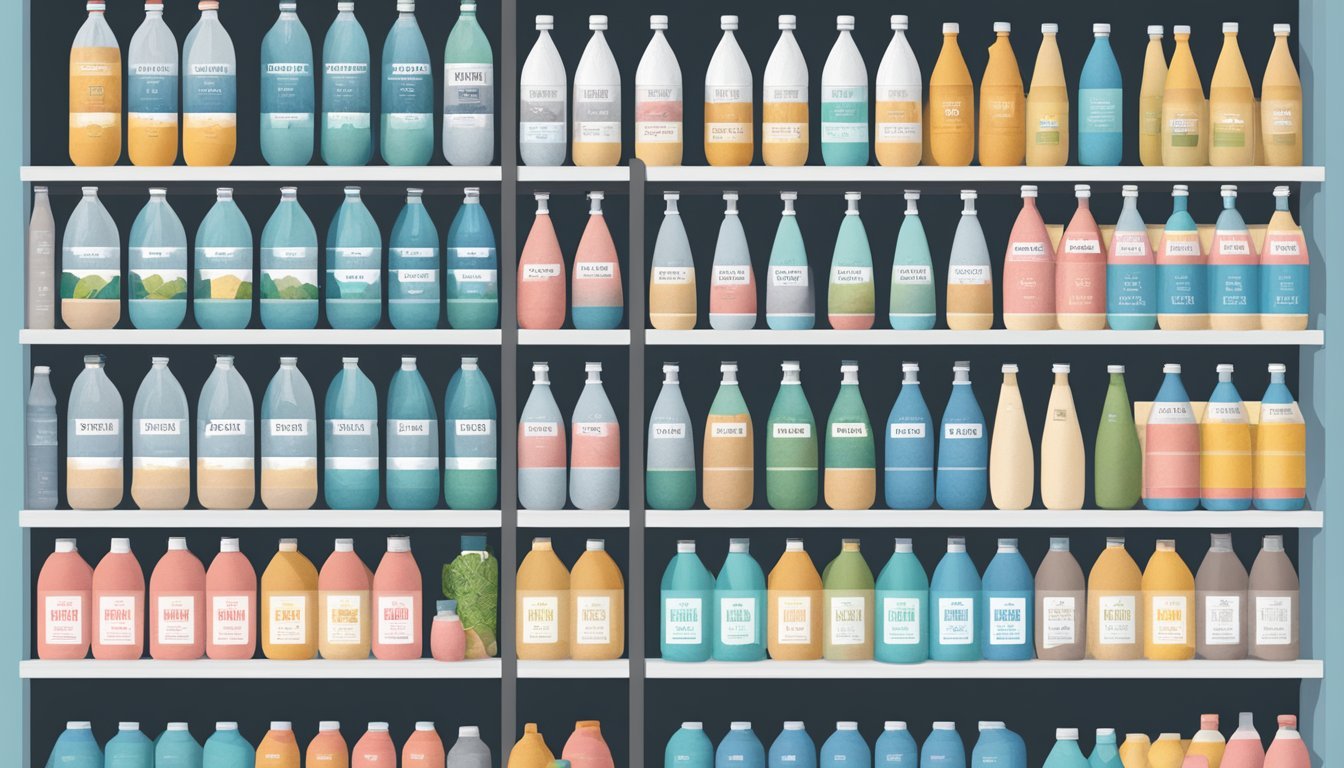Boxed Water vs. Ethos
Comparing Environmental Impact and Taste
In the realm of bottled water, Boxed Water and Ethos represent two brands that have sparked interest and discussion among consumers. As hydration becomes an ever-present concern in daily life, the choice of drinking water has expanded beyond mere thirst quenching to encompass environmental impact and ethical considerations. Boxed Water touts its packaging as a more sustainable option, using primarily paper in its cartons, which suggests a lower carbon footprint compared to traditional plastic bottles. On the other hand, Ethos Water, owned by Starbucks, promises to help children get access to clean water with every purchase, aligning consumer choices with philanthropic initiatives.
The bottled water industry has witnessed a significant shift as packaging and source credibility become critical factors influencing consumer decisions. Traditionally, plastic bottles have dominated the packaged water scene but in recent times, alternatives like Boxed Water, with its 74 percent paper, 1 percent aluminum, and 25 percent plastic composition, have emerged. Ethos, while packaged in plastic, differentiates itself with a mission-driven approach, donating a portion of its proceeds to water, sanitation, and hygiene education programs across the world.
Given these variables, the debate between Boxed Water and Ethos extends beyond taste and purity to the core values of the consumer. It invites a reflection on one's personal responsibility toward environmental sustainability and social contribution through the simple act of choosing a bottled water brand. Such considerations are reshaping the landscape of the bottled water market, as people increasingly factor in the ecological footprint and the societal impact of their hydration choices.
Environmental Impact of Boxed and Bottled Water
Consumers increasingly seek sustainable and eco-friendly alternatives to traditional bottled water such as Boxed Water and Ethos. This consideration has led to scrutiny over their packaging sustainability, carbon footprint, and recyclability.
Sustainability of Packaging Materials
Boxed Water primarily employs paper-based cartons that utilize a blend of paper, plastic, and aluminum. The paper originates from renewable trees, which can be considered more sustainable than single-use plastics dominant in bottled water packaging. Ethos Water, on the other hand, often comes in plastic bottles. Although the plastics used in Ethos bottles might be recyclable, they usually are less sustainable due to the energy-intensive production processes and the lower recycling rates for plastics compared to paper.
Carbon Footprint Considerations
The carbon footprint of Boxed Water is reported to be lower in comparison to traditional plastic bottles. Studies suggest that cartons from Boxed Water have a 36 percent lower carbon footprint and utilize 43 percent fewer fossil fuels. In terms of carbon impact, Ethos Water has not specifically marketed itself as a lower-carbon alternative, suggesting that its footprint may align more closely with that of other traditional bottled waters, potentially making it less favorable from a carbon perspective.
Recycling and Waste Management
When it comes to recycling and waste management, the scenario varies. If carton recycling facilities are available, Boxed Water can be seen as more eco-friendly since cartons consolidate paper, plastic, and a small amount of aluminum, which can be separated and recycled. However, in regions where such specialized recycling facilities are absent, their environmental advantage may diminish. Ethos bottles, being primarily plastic, can be recycled where facilities exist but suffer from a global issue where a significant portion of plastic does not end up being recycled and may contribute to pollution. Both options are superior from an environmental standpoint when compared to non-recyclable single-use plastics.
Boxed Water Is Better and Ethos Water Overview
This section provides an insightful comparison between Boxed Water Is Better and Ethos Water, examining their commitment to sustainability and how it is reflected in their packaging and brand missions.
Brand Ethos and Mission Statements
Boxed Water Is Better places environmental stewardship at the core of its brand identity. They emphasize sustainability by using paper-based packaging, which they assert is a more eco-friendly solution compared to traditional plastic water bottles. The company was launched in 2009 with the intent of providing a disruptively simple solution to the environmental impact of bottled water.
Ethos Water, in contrast, is a Starbucks-affiliated brand known for its social mission. For every bottle of water sold, Ethos Water contributes a portion of its profits to support water, sanitation, and hygiene education programs in water-stressed countries. With its establishment in 2002 and later acquisition by Starbucks in 2005, Ethos Water combines its commercial objectives with a strong drive towards addressing global water issues.
Packaging and Presentation
Boxed Water Is Better utilizes a distinctive milk carton-like design for its water packaging. According to the company, their cartons are composed of 74% paper, 1% aluminum, and 25% plastic, with the plastic component ensuring the integrity and waterproof nature of the carton. This is part of the company's dedication to offering a recyclable and more sustainable packaging solution.
Ethos Water, while owned by Starbucks, offers bottled water in a plastic container. Although plastic bottles can be recycled, they are often criticized for their environmental footprint. Ethos's packaging is in line with typical bottled waters but leverages the brand strength of Starbucks to promote its social mission.
Both brands present their products as premium water solutions, with a strong emphasis on their respective environmental and humanitarian causes, reflecting a growing consumer demand for products that provide value beyond mere consumption.
Health and Safety Aspects
When comparing Boxed Water and Ethos, it's crucial to consider the health and safety aspects related to water quality, regulatory standards, and potential contaminants—factors that directly impact consumer health.
Water Quality and Purity
Boxed Water asserts its water undergoes a purification process that includes ultraviolet light, carbon filtration, and reverse osmosis—a rigorous method aimed at achieving high purity levels. This multifaceted approach helps remove impurities and ensures that the water does not contain harmful levels of contaminants like chlorine, arsenic, or fluoride.
Ethos Water, on the other hand, is sourced from municipal supplies, and while it is filtered for impurities and tested for safety, the flavor can be influenced by the original water source. Ethos aims to deliver water that is not only safe but also has a pleasant taste without a hint of contaminants.
Regulatory Compliance and Certifications
Both Boxed Water and Ethos have to meet the Food and Drug Administration (FDA) regulations, ensuring that their water is safe for consumption. They are subject to independent testing to confirm that they meet relevant health and safety standards and are certified as safe drinking water. Ethos, part of the Starbucks brand, additionally follows corporate quality standards.
Potential Contaminants
The packaging is another crucial factor in ensuring the water's safety. Boxed Water packaging is composed mostly of paper and is BPA-free, ensuring that no BPA contaminants leach into the water. Furthermore, the minimal use of plastic and aluminum in their containers also plays a part in maintaining the water's purity.
Ethos utilizes plastic bottles for packaging, which are also BPA-free, adhering to safety concerns about potential chemical leaching. However, critics often point to the larger environmental footprint associated with plastic bottle production and disposal.
Both companies provide water that meets stringent health and safety regulations, with a focus on delivering a product that is free from harmful levels of fluoride, arsenic, and chlorine, maintaining both taste and quality.
Consumer Experience and Convenience
Consumer experience in the realm of bottled water pertains directly to the sensory enjoyment and practical aspects of the product, with Boxed Water and Ethos offering distinct takes on taste and transportability.
Taste and Palatability
Boxed Water presents its product as environmentally conscious and that commitment extends to its contents. They often aim for a clean and crisp taste that rivals traditional bottled water. The absence of flavors provides a neutral palate experience reminiscent of flat water, which many consumers find desirable. Ethos Water, on the other hand, is a Starbucks-affiliated brand known for offering a portion of its profits to water charity programs. Ethos Water is sourced from private springs and has its unique mineral profile, affecting its flavor subtly and offering a distinctive taste that some consumers may prefer over others.
Ease of Use and Portability
When evaluating convenience, Boxed Water packaging stands out for being predominantly made from paper, which presents some distinctions in both use and portability when compared to traditional plastic bottles like those used by Ethos. While Boxed Water touts a design that is over 90% plant-based, the container's shape can impact ease of storage in some car cup holders and bags. On the contrary, Ethos Water’s plastic bottles are familiar in form and fit comfortably in standard holders, making them potentially more convenient for on-the-go consumers. Both brands are non-sparkling and flat, tying them to the category of still water. Neither brand prominently features refillable or reusable water bottle options, focusing instead on the single-use model. However, the eco-friendly mission of Boxed Water might resonate with those who prioritize environmental concerns despite the single-use nature of the product.
Analysis of Water Sources and Filtration Processes
The purity and mineral content of bottled water hinge on the sources of the water and the methods used to filter it. Consumers often weigh the quality based on these factors.
Natural Spring Water vs. Municipal Sources
Natural spring water typically originates from underground aquifers and naturally emerges to the surface. For example, Icelandic glacial water is sourced from springs that are replenished by glacier meltwater filtering through volcanic lava rock, contributing to a natural alkaline pH and a unique mineral profile. On the other hand, municipal sources are often surface water treated to meet drinking water standards, potentially lacking the distinctive minerals found in natural sources.
Natural Spring Water:
Source: Underground aquifers, e.g., mountain spring water
Filtering: Natural filtration through layers such as limestone and lava rock
Minerals: Contains natural minerals vital for health
Municipal Water:
Source: Surface water, including rivers and reservoirs
Filtering: Mechanically treated and disinfected
Minerals: Often requires additional mineralization
Filtration Techniques and Mineral Content
When evaluating bottled water brands like Boxed Water and Ethos, their filtration techniques play an essential role. Reverse osmosis is a common method, stripping water of nearly all its minerals and impurities. Post-filtration, some brands choose to re-mineralize the water using compounds like Blutriton to add a specified blend of minerals. Technologies like ultraviolet light purification are also utilized to ensure water safety without altering its mineral composition.
Reverse Osmosis:
Effectiveness: Removes a high percentage of contaminants
Impact on Minerals: Significant reduction of natural mineral content
Re-mineralization:
Purpose: Restores minerals to water post-filtration
Common Minerals Added: Calcium, magnesium, potassium
Ultraviolet Purification:
Effectiveness: Efficiently disinfects without chemicals
Impact on Taste: Minimal, preserving the natural character of the water
Cost and Value Proposition
When evaluating Boxed Water and Ethos in terms of cost and value, consumers weigh not only the price of the product but also what the brand represents, including its commitment to sustainability and its charitable contributions. These factors contribute to the overall value proposition of each brand.
Price Point Comparison
Boxed Water and Ethos Water present distinct price points, reflecting their unique market positioning.
Boxed Water: Typically targets consumers looking for sustainable packaging and is priced competitively with premium bottled water brands. Its cartons are often more expensive than standard plastic bottled water due to the added costs of sustainable materials.
Ethos Water: Sold primarily through Starbucks locations, Ethos Water positions itself as a socially responsible brand. While the cost may be higher than average bottled water, Ethos includes a charitable component, which is a significant factor in its value proposition.
Brand Value and Customer Loyalty
Both brands have cultivated strong brand values that resonate with specific customer bases, fostering loyalty.
Boxed Water: It emphasizes environmental sustainability, using paper-based packaging and committing to a lower carbon footprint. Customers loyal to Boxed Water are often motivated by ecological concerns and the brand's eco-friendly resources.
Ethos Water: It has built a reputation around its philanthropic efforts, pledging a contribution to support water projects with each purchase. This initiative appeals to customers who value social impact and are willing to pay a premium for a product that aligns with their ethics.
Market Presence and Availability
In the bottled water industry, distribution networks and strategic partnerships significantly influence market availability. Both Boxed Water and Ethos Water are leveraging these aspects to meet consumer trends that increasingly favor sustainable packaging and ethical brand practices.
Distribution Channels
Boxed Water's distribution channels have evolved, focusing on both online and physical storefronts. They have successfully penetrated the retail market with products available in grocery stores, convenience stores, and through e-commerce platforms. Ethos Water, predominantly found in Starbucks locations due to its acquisition by the Starbucks Corporation, has a more limited but targeted distribution channel, aiming to reach consumers at coffeehouse locations.
Partnerships and Collaborations
Strategic partnerships are pivotal for both brands. Boxed Water emphasizes its commitment to sustainability by partnering with organizations focused on reforestation and water conservation. On the fly, Alaska Airlines chose to serve Boxed Water to its passengers, favoring the brand's environmental benefits over traditional plastic bottles. Ethos, under the Starbucks umbrella, benefits from the visibility and consumer base of its parent company, while contributing a portion of its proceeds to global water projects.
Market Trends and Consumer Choices
Consumer preferences are shaping market trends, with a shift towards environmentally conscious products. Boxed Water responds to this trend by offering a product that claims a lower carbon footprint and fewer fossil fuel uses compared to traditional plastic water bottles. Consumers are becoming more aware of the impact of their purchases, and Boxed Water's packaging – which uses paper from sustainably managed forests – targets those looking for greener alternatives. Ethos Water also engages consumers by highlighting its ethical initiatives, with each purchase contributing to the brand's mission to provide children around the world with access to clean water.
Conclusion
Boxed Water and Ethos Water represent two different approaches to providing consumers with bottled water. Boxed Water emphasizes sustainability with its cartons made of 76% paper, also integrating thin layers of plastic and aluminum to maintain water quality. Ethos Water, sold by Starbucks, contributes a portion of its profits to global humanitarian water programs, signaling a commitment to clean drinking water and stewardship.
Boxed Water's environmental merits include:
Lowered carbon footprint
Reduced use of fossil fuels
Minimal ozone depletion impact
Ethos Water's social impact:
Financial support for water access initiatives
Awareness-raising about water scarcity
When considering hydration options from worst to best regarding sustainability and positive change, consumers should weigh the environmental benefits of packaged water against the social contributions. Boxed Water offers a sustainable package, while Ethos Water focuses on clean drinking water projects.
Ultimately, the preference for Boxed Water or Ethos Water depends on the individual’s values—whether one prioritizes immediate environmental impact or long-term global water solutions. Both companies provide steps towards positive change, with Boxed Water leading in eco-friendly packaging and Ethos in social enterprise. Consumers looking to make informed choices should consider their hydration needs in the context of these broader impacts.






